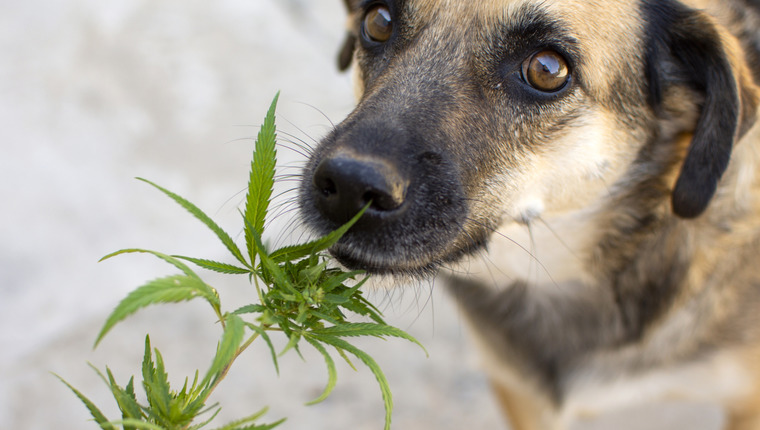
According to a dog walking service in the English town of Darlington, three dogs were admitted to the vet with cannabis poisoning.
Baydale Dog Walkers said in a Facebook post early today (Jan. 26): “Just a heads up to any dog owners, we have been alerted that Two dogs have been admitted to the vets with cannabis poisoning, picked up in Low Coniscliffe, with a third dog admitted with suspected cannabis poisoning. Please keep an eye out for dogs eating anything they shouldn’t.”
Fortunately, per The Northern Echo, the three pups are all okay. One dog had to spend the night at the vet, but they’re all recovering.
Cannabis is currently illegal for recreational use in the UK, where it is a Class B drug. However, the government legalized cannabis for medical use in 2018.
What To Be Aware Of
Per the American Kennel Club, cases of marijuana poisoning have risen in recent years. While it’s not usually fatal, it’s something that can be rather unpleasant for a pup.
In the US, cannabis poisoning often occurs when users bake it into snacks like cookies and brownies – any dog parent knows that these tasty treats are often hard to resist for pups who see them resting on the counter or the table.
However, marijuana poisoning can also occur when dogs eat any part of the plant, from consuming hashish oil, or from smoke inhalation. Dogs can even get cannabis poisoning from eating the feces of somebody who has ingested the drug.
Cannabis Poisoning – The Symptoms
There are a number of symptoms to watch out for. It’s worth all dog parents remembering them, whether or not they consume marijuana themselves. After all, you never know what your pooch might come across on a walk.
If a dog appears lethargic and dull and is stumbling over or crossing over their feet, or vomiting, it could be cannabis poisoning. Other symptoms include dilated pupils, urinary incontinence, tremors and shaking, and agitation.
If in doubt, or you’re concerned, it’s important to seek veterinary advice straight away.




